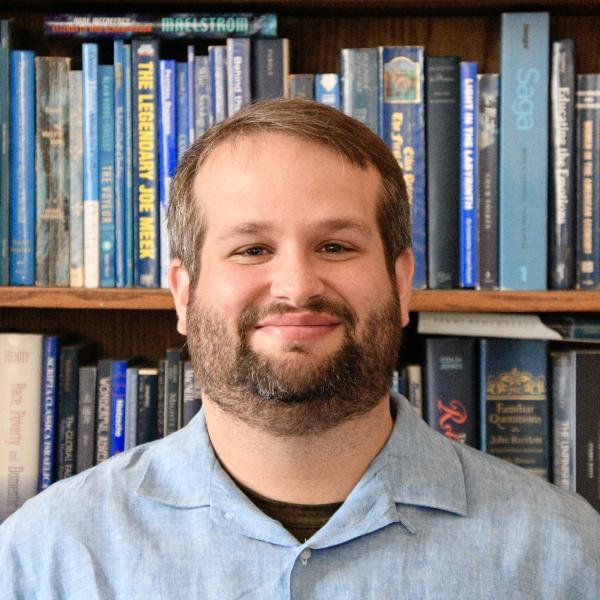Biography
Assistant Instructional Professor, Master of Arts Program in the Humanities, Department of Philosophy, The College
I received my PhD in Philosophy from the University of Chicago in August 2021, and before that earned a B.A. from The Evergreen State College in Olympia, Washington. My research interests are broadly in the history of theoretical philosophy from the late medieval period to the history of analytic philosophy, including especially early modern philosophy and German idealism. My dissertation was on the Kantian doctrine that we do not know things as they are in themselves, which I think of as part of a longer tradition of skepticism about the knowability of substance in medieval and early modern thought.
I am currently working on projects on the knowability of substance in Locke and Kant; on the relation between Kant’s conception of transcendental philosophy and the longer medieval tradition of transcendental thought; and on the Kantian claim that there are certain “pure concepts” we all possess simply by having the capacity for conceptual thought. I have taught philosophy here at UChicago, at the School of the Art Institute of Chicago, and in Chicago Public Schools, and am excited to work with MAPH students interested in most any area of philosophy as well as on a wide array of interdisciplinary projects. I am a member of Faculty Forward/SEIU Local 73, the contingent faculty union at the University of Chicago.
Current MAPH Courses
Literature and Philosophy: Knowing, Being, Feeling (Winter 2026)
(PHIL 21213/41213) Crosslistings: ENGL 21213, ENGL 41213, MAPH 41213
Modern theories of the subject – theories that answer the questions of what we are, how we are, and how we relate to others – have their roots in the seventeenth and eighteenth centuries. Philosophers of the era, finding themselves free to diverge from classical accounts of the human and its world, pursued anew such questions as: What is the mind and how does it come by its ideas? How do we attain a sense of self? Are we fundamentally social creatures, or does the social (at best) represent a restriction on our animal drives and passions? Literature, meanwhile, examined these questions in its own distinct manner, and in doing so witnessed what many scholars recognize as the birth of the novel – a genre for which accounts of the subject are of central importance. This interdisciplinary course will read widely in Early Modern and “Enlightenment” literature and philosophy to better understand the roots of contemporary accounts of the subject and the social. Philosophical readings will include texts by John Locke, David Hume, Adam Smith, Mary Astell, Thomas Reid, Marya Schechtman, and Stephen Darwall. Literary readings will include Richard Steele, Alexander Pope, Horace Walpole, Eliza Haywood, John Cleland, Ignatius Sancho, Laurence Sterne, and Jane Austen. Open to undergraduate and MA students, and all others with consent. Co-taught with MAPH Preceptor Tristan Schweiger.
Spinoza’s Ethics (Spring 2026)
(PHIL 27200/47200) Crosslistings: MAPH 47200
An in-depth study of Benedict Spinoza’s major work, the Ethics, supplemented by an investigation of some of his early writings and letters. Focus is on Spinoza’s geometric method, the meaning of and arguments for his substance monism, his doctrine of parallelism, and his account of the good life. Open to undergraduate and MA students, and all others with consent.

